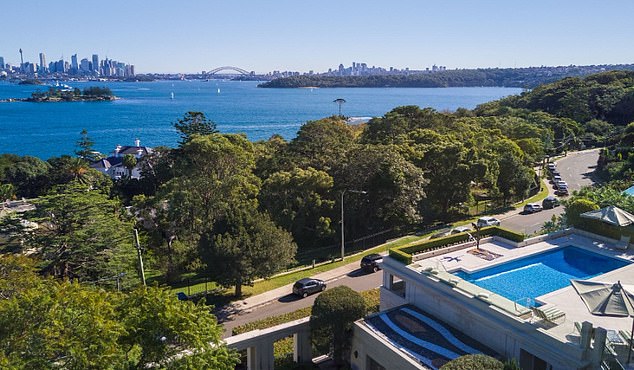Ranks of Aussie millionaires tipped by UBS Global Wealth Report to swell by hundreds of thousands in next five years – here are the reasons why
A Swiss bank predicts the number of millionaires in Australia will increase by 400,000 within five years.
The UBS Global Wealth Report predicts a 21 percent increase in the number of millionaires due to rising property prices, inheritances and a booming stock market.
That would mean Australia would have 2,334,015 millionaires in 2028, an increase of 397,901 from 1,936,114 in 2023. That’s one in 10 adults based on wealth measured in US dollars.
Adjusted for population size, Australia has more millionaires than the US, New Zealand, the Netherlands or Singapore. But it still lags behind Luxembourg and Switzerland.
To be in the elite class, an Australian would need to have 1.478 million Australian dollars in assets, including the family home, minus any debts. The Australian dollar is now worth just 67.7 US cents.
Someone who owns an average Sydney home worth $1.466 million and a car is considered a millionaire by UBS.
In terms of average wealth, Australia came in second, after Luxembourg. The average Australian had a wealth of $261,805 or $386,858.
But Australia ranked fifth on the average scale of total wealth divided by population, with the average Australian owning $US546,184 or $A806,811 in assets, behind Switzerland, Luxembourg, Hong Kong and the United States.
According to a Swiss bank, the number of millionaires in Australia will increase by 400,000 within five years (pictured are swimmers in Bondi)
While 10 percent of Australian adults are millionaires, in Luxembourg the figure is 16 percent, compared to 15 percent in Switzerland.
Australia ranks 16th among 36 G20 countries in the UBS list of new millionaires.
This puts the country one spot behind Canada, which also predicted a 21 percent increase in the number of millionaires, bringing the number to 2,402,200, similar to Australia.
Taiwan, the world’s leading producer of computer chips, came in first, with the number of millionaires expected to rise by 47 percent, despite China’s lurking threats to invade the island by force.
The top 10 list also included Turkey, Kazakhstan and Indonesia, countries with lower millionaire counts, plus Japan, South Korea, Israel, Mexico, Thailand and Sweden.
India, Brazil, Norway and Russia were ahead of Australia.
While the Australian stock market grew by just 7.8 percent in the last financial year, UBS expects the recovery in global markets to deliver further prosperity in the coming years.
“The generally positive performance of financial markets across much of the world in recent years is one reason behind the observed growth in the number of USD millionaires in our sample of markets, but it is certainly not the only reason,” UBS said.
‘Since the value of most assets has increased in recent years, the sheer effect of steady economic growth is driving the increase in the number of American millionaires.
‘This applies to the past as well as to predictions for the future.’

The UBS Global Wealth Report predicts a 21 percent increase in the number of people considered millionaires, due to rising house prices, inheritances and a booming stock market (pictured is a house in Vaucluse in Sydney’s east).
UBS noted that wealthy people own their own homes and included this in the definition of a person’s worth.
“Net worth or wealth is defined as the value of financial assets plus real assets (mainly housing) owned by households, minus their debts,” the report said.
Inheritance was also expected to play a major role in wealth creation as the baby boom generation died, the oldest of this post-war generation turning 78 this year.
“It is often overlooked that before wealth is passed from one generation to the next, it is often passed between partners within the same generation,” UBS said.
‘Life expectancy differs between men and women and there is often an age gap between couples. Therefore, the heir will own and retain the assets for an average of four years before passing them on.’
Wealthy countries in Europe associated with colonialism were expected to have fewer millionaires by 2028. A 17 percent decline is expected for the United Kingdom and a 4 percent decline for the Netherlands.
